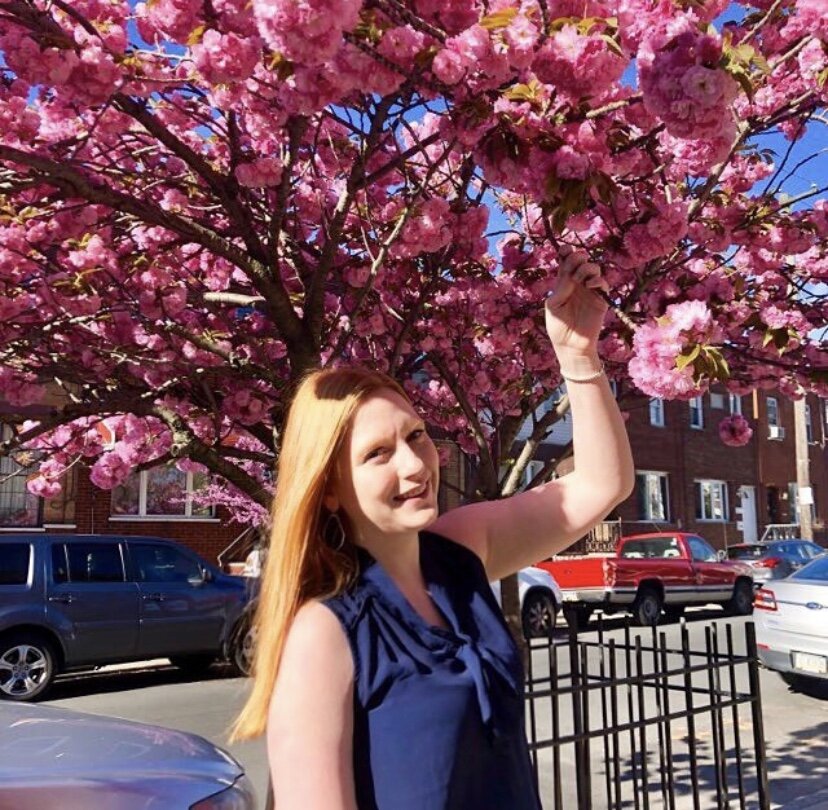First-Time Home Buyer Q&A with Katie MacNaughton Young
Meet Katie:
As a realtor who specializes in serving first-time home buyers, I get asked a lot of questions about the home buying process. For first-time home buyers, the process can be slightly intimidating, but in reality, it can be quite simple when you ask the right questions. I have compiled a list of frequently asked questions I get from my first-time buyer clients with the kind of answers you can expect from your redhead realtor.
Q: I want to purchase my first home. Where do I start?
A: The first step to purchasing a home is to get a mortgage pre-approval. A mortgage pre-approval is a promise from your lender showing that you are qualified to borrow up to a certain amount of money, and shows a seller you are able to purchase their property. A mortgage pre-approval is an important tool, as it determines your price point. Also, once you get pre-approved you loan officer can give you an idea of the mortgage rate you can expect, how much you need to put down and an estimate of your closing costs. I strongly recommend getting pre-approved before looking at properties. In a highly competitive market, you don’t want to scrounge around for a pre-approval at the last minute. Waiting on a pre-approval will unnecessarily delay your ability to submit an offer, allowing your competition (other buyers) to swoop in and put in an offer. I have had clients miss out a wonderful home because they did not have their pre-approval and in the meantime another buyer came in and put an offer. You can get started with a pre-approval from your bank but your realtor should have a list of companies and loan officers they are happy to recommend. That list is always helpful, and your realtor will typically have a good rapport with them, resulting in a smooth transaction down the road.
Q: Do I have to put 20% down on a mortgage?
A: No, you do not! This is one of the biggest misconceptions I have noticed with first-time home buyers. You do not have to put 20% down. In fact, some mortgage programs allow you to put down as little as 3%. I recommend talking to your loan officer about first-time home buyer programs, what you could expect to put down on your home, and what your mortgage insurance would be. One benefit to putting 20% down is to avoid having to purchase mortgage insurance, but I’ll talk more about that later.
Q: How much time does it take to settle on a property? When should I start looking?
A: A typical settlement is about 30-60 days. If a property is vacant, the seller is usually motivated to settle ASAP so they are not paying the mortgage on empty place. If a property is occupied, I like to ask the listing agent when the seller’s ideal settlement would be. Usually it is in the 30-60 day timeframe, but sometimes there are reasons to settle later. I would say a good time to start looking is three to four months out from your ideal move-in date, in order to give yourself ample time to account for searching, submitting offers, negotiations, etc. If you are comfortable with overlapping a month or two of rent, it gives you a little more flexibility, as opposed to purchasing a home last-minute. If you don’t give yourself enough time to explore the market you might end up settling for a less-than-ideal property. If you start looking too early and find your dream property, there may be a significant overlap between the end of your current lease and your first mortgage payments.
Q: What time of year should I start looking?
A: There are pros and cons to purchasing in each of the four seasons. Spring is the busiest season, with autumn being a close second. The market slows down considerably during the summer months as people take their vacations, and more so during the winter months due to holidays and overall weather. As mentioned, spring is the busiest season. Sellers anticipate an influx of fresh buyers emerging from their winter hibernation and aim to list their properties during the active spring market. While you will find the most properties on the market during the spring, there is also more competition from other buyers. If you find a place you love in the spring, you often need to act fast and be prepared to submit an aggressive offer. You will typically find slightly less competition from other buyers in the fall, with a decent inventory of properties to choose from. If you start looking in the summer and winter months, you can expect lower inventory but also much less competition from other buyers. You can expect more stale listings (properties that have been on the market 60 days or more) and motivated sellers during these slower months, which would give you more leverage as a buyer.
Q: I found the perfect home. Now what? What kind of offer I should I submit?
A: When you find the right home, the next step is to work with your realtor to put together an appropriate offer. Every property is different, and therefore there is no cut-and-dry standard in regards to submitting an offer. While price is obviously the most significant component of a strong offer, there are additional factors that affect it, such as settlement date and what kind of contingencies you choose. The kind of offer you submit really depends on the property itself: the price vs. fair market value, how long the property’s been on the market and whether there other offers on the table/ other interest. Certain circumstances might necessitate submitting a “highest-and-best” offer, while other situations allow more room for negotiation. Pennsylvania has a 13 page standard agreement of sale for this process. I always tell my clients this 13 page document is a sort of blueprint of the transaction from start to finish. This is where you dictate your terms as a buyer.
I like to go over the agreement of sale and the steps to purchasing a home before looking at properties. This way the buyer can get a good idea of the process and what things to keep in mind well before submitting an offer (will the property appraise?, could there be issues during the home inspection?, etc.).
Q: What are closing costs?
A: Closing costs in Philadelphia range generally around 4-6% of the purchase price. A big chunk of closing costs in Philadelphia is the transfer tax of 4.278 percent (split evenly to 2.139%). Other fees include loan origination and underwriting fees, title insurance and prorated taxes, which all get added to the your final closing number.
Outside of Philadelphia you will be looking at closing costs in the 3-5% range, since transfer tax is lower. The other fees pretty much stay the same. This number gets added to your down payment, so when considering your down payment keep in mind you will also have to pay the closing costs. Your loan officer will typically be able to give you a fairly accurate estimate of closing costs when you get pre-approved.
Q: What goes on at a home inspection? If they find problems in the house will the seller repair them?
A: After your offer is accepted it’s time to order a home inspection. A home inspector’s job is to thoroughly scrutinize a property inside and out, and test all systems essential to the home: they check the plumbing, electric, foundation, exterior, roof, etc. Be prepared that the home inspector will find something wrong with the house—they always do, but it is should not be immediately alarming. A home inspector will find different issues depending on the age and condition of the home, and will produce a detailed inspection report within 24-48 hours of the conclusion of the inspection.
Depending on the kind of offer you submitted and the agreed price, it may be in the seller’s best interest to make those repairs. Sometime they will not, and instead offer you a monetary credit for repairs at closing time. Once you have gone over the inspection report and seen the items that need to be fixed, another set of negotiations takes place to find out what the seller is willing take care of versus what you, the buyer, are willing to live with.
Q: What is mortgage insurance, and do I need it?
A: Mortgage insurance is an insurance policy that protects lender if the borrower defaults on payments or is otherwise unable to meet the contractual obligations of the mortgage. Mortgage insurance is often required if the purchaser is putting less than 20% down or is using an FHA loan.
Q: What is a mortgage commitment letter?
A: A mortgage commitment letter is a document that your mortgage lender produces after approving your home loan application. It informs you and the seller that you have a loan and more importantly, you have the ability to close on the property. When under contract you have to provide this letter when agreed upon to show the seller you are willing and able to move forward with the transaction.
Q: Will I get my deposit back if I back out from the home inspection? What about if I cannot obtain mortgage financing?
A: Yes, If you back out during the home inspection within the proper dates you can back out and get your full deposit back. So if you find something that is a deal-breaker, don’t worry, you are covered. Same thing with mortgage; if you elect the mortgage contingency and it turns out you cannot obtain financing you will also get your deposit money back.
Q: What is a seller assist?
A: A seller assist is a tool where the seller would pay for part of your closing costs. For example, if you submit an offer at full price with a 3% assist, it means that the seller will pay 3% of the purchase price toward your closing costs. Your mortgage would still be based on the full sales price but your cash to close would be considerably less.
A seller assist limit is based on your loan/mortgage type, as well as the down payment percentage. When submitting an offer with a seller assist remember that it might not affect your monthly mortgage payment but it does effect the seller’s bottom line. So when asking for an assist, be prepared that the seller may want full price (or higher) to offset those costs.
A seller assist can also be used after negotiating the home inspection. Instead of the seller repairing items, they can give a dollar-specific credit in the form of an assist. The idea behind this is you wouldn’t spend as much on settlement so you could apply that money toward the repairs yourself.
I’m here to help you purchase your first home.
As you can see, there is a lot to know before buying your first home. I hope this Q&A has been helpful to you. If you need more expert advice, reach out to me below. I will be there for you every step of the way!


